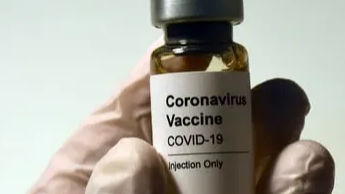A team of medical experts summoned by the United States Centers for Disease Control and Prevention to talk about the halted Johnson & Johnson COVID-19 vaccine said that not enough information was available to make an informed decision on the safety of the jab.
During the live-streamed event, the experts provided an update on the safety of the shot, which has so far been administered to 7.2 million Americans.
Health authorities announced a pause on Tuesday after six women aged 18 to 48 developed a rare disorder characterised by blood clots in the brain and low platelets.
One person has so far died and another is in critical condition.
Also Read: Pfizer COVID-19 vaccine efficacy at 90% in US trials, company says
All six were white females, none had previous known clotting disorders, and one was using estrogen/progesterone, taken to mean oral contraceptive. Three also had clots outside the brain.
According to a presentation by J&J, a seventh person has now fallen ill with the disorder, which has been dubbed “vaccine induced immune thrombocytopenia” or “VIIT.”
Ahead of the meeting, CDC director Rochelle Walensky said the symptoms are consistent with rare side effects from the AstraZeneca vaccine seen in Europe.
“I want to share with you my confidence in the system that we have in place,” she said.
“Jointly, CDC and FDA (Food and Drug Administration) were able to identify these rare events and act quickly to alert health care providers, as well as the public.”
People who received the J&J vaccine are being urged to report if they experience symptoms including severe headache, abdominal pain, leg pain or shortness of breath.
Also Read: J&J vaccine: Risks and symptoms related to COVID-19 shot
Doctors meanwhile have been told not to treat such clots with the common thinner heparin.
Four of the initial six cases were treated using heparin, and this might have made their condition worse, according to the leading biological hypothesis for what is driving the effect.
Both the J&J and AstraZeneca vaccines are based on adenovirus vector technology, which is now under scrutiny.
Other COVID adenovirus vector vaccines include Russia’s Sputnik V and China’s CanSino.
Cases involving brain or abdomen clots together with low platelets have not been linked to the Pfizer or Moderna vaccines, which are based on messenger RNA technology.
Experts attending the meeting of the Advisory Committee on Immunisation Practices (ACIP) are scheduled to hold a vote on “updated recommendations for use” — but are not obliged to hold the vote Wednesday.
Also Read: Answer to all your questions about Johnson & Johnson vaccine
Restrictions might include recommending that only people beyond a certain age receive it.
The reasoning is that the older people get, the more they risk developing a serious form of COVID, and the more it is in their interest to be vaccinated despite potential side effects.
But US officials have also emphasised that they have more than enough supply lined up of the Moderna and Pfizer vaccines to cover the adult population by the end of July, which further complicates the picture.







